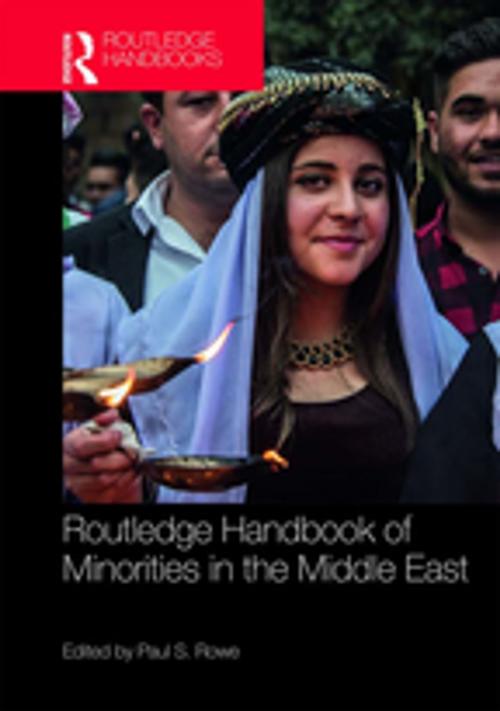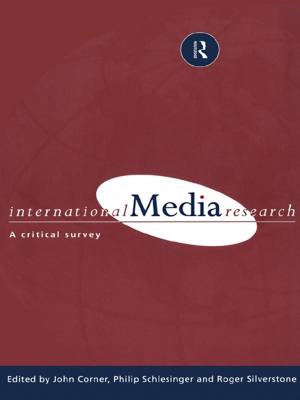Routledge Handbook of Minorities in the Middle East
Nonfiction, Social & Cultural Studies, Social Science, Cultural Studies, Minority Studies, Political Science, International| Author: | ISBN: | 9781317233787 | |
| Publisher: | Taylor and Francis | Publication: | September 20, 2018 |
| Imprint: | Routledge | Language: | English |
| Author: | |
| ISBN: | 9781317233787 |
| Publisher: | Taylor and Francis |
| Publication: | September 20, 2018 |
| Imprint: | Routledge |
| Language: | English |
The Routledge Handbook of Minorities in the Middle East gathers a diverse team of international scholars, each of whom provides unique expertise into the status and prospects of minority populations in the region. The dramatic events of the past decade, from the Arab Spring protests to the rise of the Islamic state, have brought the status of these populations onto centre stage. The overturn of various long-term autocratic governments in states such as Tunisia, Egypt, Libya, and Yemen, and the ongoing threat to government stability in Syria, Iraq, and Lebanon have all contributed to a new assertion of majoritarian politics amid demands for democratization and regime change. In the midst of the dramatic changes and latent armed conflict, minority populations have been targeted, marginalized, and victimized. Calls for social and political change have led many to contemplate the ways in which citizenship and governance may be changed to accommodate minorities – or indeed if such change is possible.
At a time when the survival of minority populations and the utility of the label minority has been challenged, this handbook answers the following set of research questions.What are the unique challenges of minority populations in the Middle East? How do minority populations integrate into their host societies, both as a function of their own internal choices, and as a response to majoritarian consensus on their status? Finally, given their inherent challenges, and the vast, sweeping changes that have taken place in the region over the past decade, what is the future of these minority populations? What impact have minority populations had on their societies, and to what extent will they remain prominent actors in their respective settings?
This handbook presents leading-edge research on a wide variety of religious, ethnic, and other minority populations. By reclaiming the notion of minorities in Middle Eastern settings, we seek to highlight the agency of minority communities in defining their past, present, and future.
The Routledge Handbook of Minorities in the Middle East gathers a diverse team of international scholars, each of whom provides unique expertise into the status and prospects of minority populations in the region. The dramatic events of the past decade, from the Arab Spring protests to the rise of the Islamic state, have brought the status of these populations onto centre stage. The overturn of various long-term autocratic governments in states such as Tunisia, Egypt, Libya, and Yemen, and the ongoing threat to government stability in Syria, Iraq, and Lebanon have all contributed to a new assertion of majoritarian politics amid demands for democratization and regime change. In the midst of the dramatic changes and latent armed conflict, minority populations have been targeted, marginalized, and victimized. Calls for social and political change have led many to contemplate the ways in which citizenship and governance may be changed to accommodate minorities – or indeed if such change is possible.
At a time when the survival of minority populations and the utility of the label minority has been challenged, this handbook answers the following set of research questions.What are the unique challenges of minority populations in the Middle East? How do minority populations integrate into their host societies, both as a function of their own internal choices, and as a response to majoritarian consensus on their status? Finally, given their inherent challenges, and the vast, sweeping changes that have taken place in the region over the past decade, what is the future of these minority populations? What impact have minority populations had on their societies, and to what extent will they remain prominent actors in their respective settings?
This handbook presents leading-edge research on a wide variety of religious, ethnic, and other minority populations. By reclaiming the notion of minorities in Middle Eastern settings, we seek to highlight the agency of minority communities in defining their past, present, and future.















